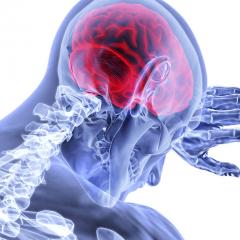Professor Gail Robinson: building tools to help with brain disorders
Professor Gail Robinson is a clinical and cognitive neuropsychologist with the Queensland Brain Institute (QBI) and the founder of the Neuropsychology Research Clinic at the University of Queensland. She specialises in a range of neurological disorders including dementia, stroke, movement disorders, motor neurone disease and brain tumours.

Since the early 1990s, she has researched the mind brain connection, particularly executive functions, language and the formation of memory. During her years in clinical practice and her work in neurocognitive assessment and rehabilitation, she has developed tools and processes that have transformed the lives of thousands of people living with dementia and movement disorders.
“Dementia is not just one thing – it’s not just about memory – there are many different types, and that’s why it takes so long sometimes to get a diagnosis,” said Professor Robinson who joined QBI in 2018.
“If there is a diagnosis of dementia, knowing exactly what type can help inform potential personalised interventions and management strategies.
“Having that neurocognitive assessment really is the starting point for whether there’s something wrong or not, and whether people need to worry.”
Neuroscience impacting people's lives
Her latest research has seen the development of a brief executive language screening test, which she is using in acute stroke patients to predict recovery outcomes. She is combining her in-depth understanding of neuroscience with her clinical work to take her findings from bench to bedside.
“I’ve taken the theoretical research, meaning how does the mind work, to really understand the cognitive processes in a fine-grained way to inform assessment and diagnosis tools,” she said.
“We have now developed a brief executive language screening test that can predict how much a stroke patient will recover to function independently in their first year in a brief 20-minute test.
“Within that, there’s also memory and executive function subtests that look at the underlying cognitive mechanisms that contribute to learning and to apathetic behaviours that are symptomatic of motor disorders and dementias, which increases the scope of our research and potential impact.”
According to Professor Robinson, a rewarding career working as a clinical researcher has gone hand in hand.
“You can’t be a clinician without being a researcher,” said Professor Robinson.
“Neuropsychology is as much clinical as it is theoretical. My theoretical research about how the brain works in terms of cognition, informs the clinical research, which then informs the theory. It really goes both ways.”
After studying a Bachelor of Science, Professor Robinson believed clinical psychology would be her trajectory, but the turning point came in London, where she obtained her PhD in clinical neuropsychology while working at the National Hospital for Neurology and Neurosurgery from 1996-2010.
“It was a turning point in my career,” she said.
“Working clinically in a research environment for 14 years, it became obvious that I was spending more time in the clinic than I was doing research and that’s when I realised, I needed to make a change. So, I moved back to Australia and joined UQ.
“I love being surrounded by people who are research focused, there’s a real drive to keep the research going.
“Working clinically and contributing to clinical research really is the best of both worlds.”



